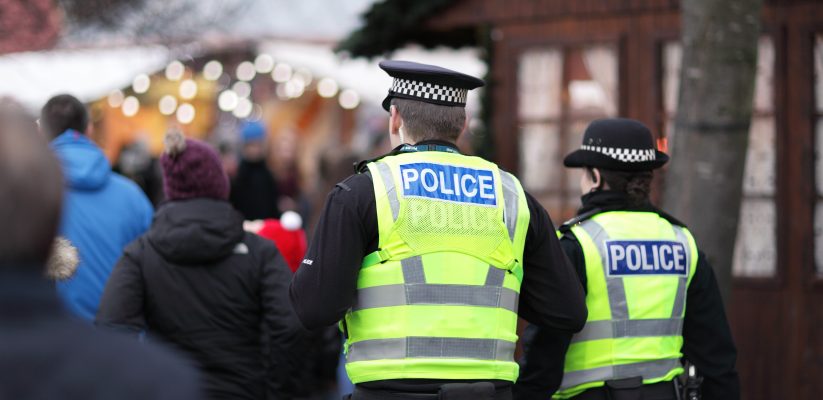Dr Paul Betts, course leader of our new Policing BA Honours degree, writes about the importance of new approaches to police education.
During three decades of police service, I’ve learnt that policing should be a public good and if done well, is a service we can all rely on as citizens.
Policing often encounters people at their lowest life ebb – following bereavement, the trauma of victimisation, or being detained as a suspect. Police officers in the UK enjoy wide discretion in their responses, and this can make a bad situation for someone better or worse, depending on police responses.
This response can make victims feel less traumatised, ensure convicted offenders understand the impact and drivers of their behaviour and get support to turn their lives around, and reassure citizens about the calm hand of protection that policing can be.
The opposite of this is also true; victims can be retraumatised by bad experiences of policing, offenders can continue on a cycle of destructive behaviour, and the public can be left gobsmacked at incompetence, poor or criminal behaviour from those sworn to serve them.
Issues in Policing today
In recent years, British policing seems to remain locked into a sort of permacrises, amplified if you experience policing as a member of a marginalised group. Thirty years after the murder of Stephen Lawrence and Lord Macpherson’s findings of institutional racism, Baroness Casey’s 2023 report finds ongoing problems of institutional racism, now accompanied by institutional misogyny and homophobia.
The MacPherson report definition suggested if institutional racism existed then you should be able to detect it in the processes, attitudes and behaviours of policing. The Independent Office of Police Coduct (IOPC) findings of Operation Hotton at Charing Cross Police station; the experiences of Mina Smallman and her family; the search of Child Q; the ongoing protests reminding us that Black Lives Matter; or the most recent footage of the violent arrest of suspects at Manchester airport, all show us that there are still serious, significant issues effecting citizens’ relationship with British policing. This all suggests that a radical change in approach is required, and urgently.
All of this has happened in the context of a multi-million pound government investment in a ‘professionalisation agenda’, linked to government narratives about more efficient policing, led by the evidence. This has seen the founding of the College of Policing; entry by degree to the service; the development of Authorised Professional Practices; and a plethora of action plans for change. All governed and accredited by the state through a variety of QANGOs and ALMOs, such as the College and the What Works Centre for Crime Reduction. Putting it mildly however, and from an external perspective, the professionalisation mission does not appear to be going very well.
Why is Policing at Westminster different?
Our Westminster policing degree deliberately takes an alternative approach to the government-accredited police professional degree route. Very importantly, our degree sets out to equip graduates to make change happen. Our modules include professional skills such as investigation and community work, as well as work experience opportunities in the Met.
Uniquely however, our students also have the freedom and space to explore critical issues that we believe all police officers need to reconcile if they are to provide effect services to communities. For example, we look at why: relationships between the police and white working class communities in Britain remain tainted by police violence at industrial protests and over-zealous use of anti-social behaviour legislation and orders against young working class people; black and ethnic minority communities fear becoming victims of crime, and anticipate violence at the hands of the police; LGBTQ+ communities feel let down by policing; and women no longer feel safe when approached by police officers, post-Sarah Everard. We cover the state’s history of British policing from Sir Robert Peel, but also look at emerging decolonising histories of policing that find its roots in empire, asking our students to consider what might be done to radically shift policing in more progressive directions.
Our new degree is aiming to transform policing. If you’re passionate about making a difference, then come and join us to start that journey.
About Westminster
As one of the most diverse universities in the UK, we are a global university with London energy, with more than 19,000 students from 169 countries. To find out more about our Policing BA, visit our website.
- Can an algorithm be sued? Lessons from the Law & Technology frontier - July 9, 2025
- A week in the life of a Psychology student: Saumyaand Anandi - March 11, 2025
- Why do we need new and diverse approaches to police education? - August 9, 2024
